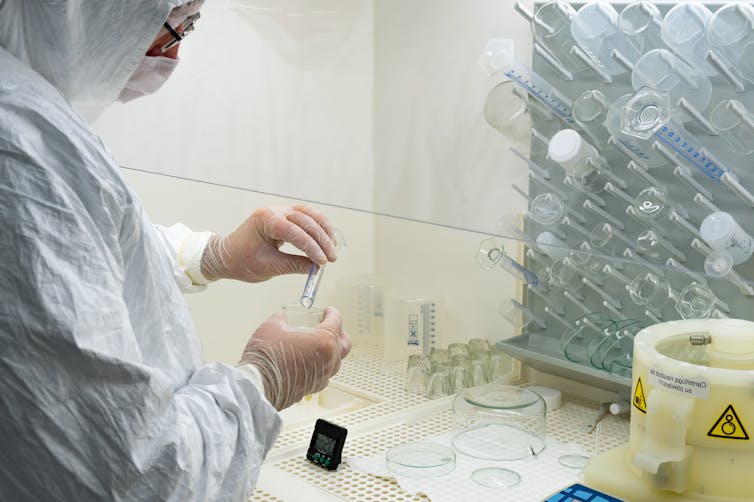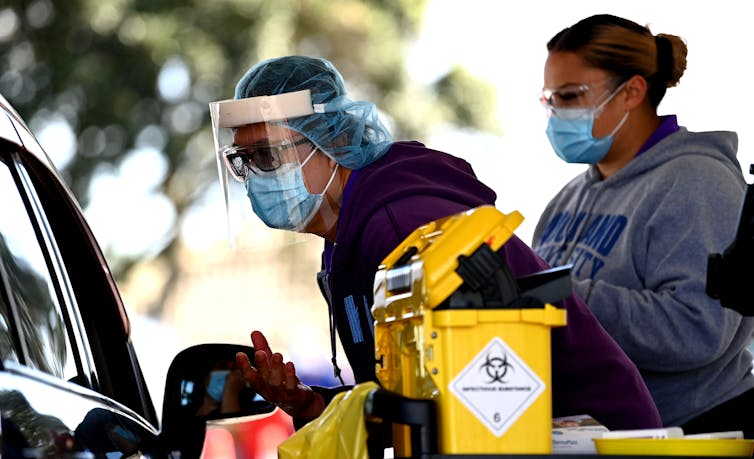There are two ways of looking at the latest findings concerning the long-term effects of severe COVID-19.
- If you are a creationist, you could marvel at the inventive genius of any intelligent designer who could design such a thing as the SARS-CoV-2 virus that causes COVID-19 just to increase the suffering in the world
- If you are a caring and compassionate person, you can appreciate how this findings makes it imperative that as many people as possible are vaccinated and boosted in order to reduce the likelihood of someone else catching the disease and to help make the pandemic a thing of the past.
The risk of new onset dementia was more common in COVID-19 pneumonia patients over the age of 70 in our study.
The type of dementia seen in survivors of COVID-19 infection mainly affects memory, ability to perform everyday tasks and self-regulation. Language and awareness of time and location remained relatively preserved.
The findings suggest a role for screening for cognitive deficits among COVID-19 survivors. If there is evidence of impairment during screening and if the patient continues to report cognitive symptoms, a referral for comprehensive assessment may be necessary.
MU School of Medicine.
The study was only of new onset dementia. The median time interval between infection and dementia diagnosis was 182 days for COVID-19 patients. The study only included new onset dementia associated with hospital admission during a short follow-up period. Dr Qureshi said a more detailed study, conducted over a longer time may help to determine the reasons why COVID-19 is linked to dementia.
The authors give more details in the abstract to their open access paper published in the journal Open Forum Infectious Diseases:
AbstractThe findings from this study, with the findings in the study which was the subject of my last blog post which showed the efficacy of the vaccines in children, give a very clear message to anyone with a sense of social responsibility, which I appreciate tends not to include evangelical creationists and members of extremist right-wing antivaxxer cults, is that vaccinations work and should be encouraged, if we are ever to put an end to this pandemic and to reduce the suffering it has wrecked worldwide.
Background
Case series without control groups suggest that severe acute respiratory syndrome coronavirus 2 (SARS-CoV-2) infection may result in cognitive deficits and dementia in the postinfectious period.
Methods
Adult pneumonia patients with SARS-CoV-2 infection (index hospitalization) and age-, gender-, and race/ethnicity-matched contemporary control pneumonia patients without SARS-CoV-2 infection were identified from 110 healthcare facilities in United States. The risk of new diagnosis of dementia following >30 days after the index hospitalization event without any previous history of dementia was identified using logistic regression analysis to adjust for potential confounders.
Results
Among 10 403 patients with pneumonia associated with SARS-CoV-2 infection, 312 patients (3% [95% confidence interval {CI}, 2.7%–3.4%]) developed new-onset dementia over a median period of 182 days (quartile 1 = 113 days, quartile 3 = 277 days). After adjustment for age, gender, race/ethnicity, hypertension, diabetes mellitus, hyperlipidemia, nicotine dependence/tobacco use, alcohol use/abuse, atrial fibrillation, previous stroke, and congestive heart failure, the risk of new-onset dementia was significantly higher with pneumonia associated with SARS-CoV-2 infection compared with pneumonia unrelated to SARS-CoV-2 infection (odds ratio [OR], 1.3 [95% CI, 1.1–1.5]). The association remained significant after further adjustment for occurrence of stroke, septic shock, and intubation/mechanical ventilation during index hospitalization (OR, 1.3 [95% CI, 1.1–1.5]).
Conclusions
Approximately 3% of patients with pneumonia associated with SARS-CoV-2 infection developed new-onset dementia, which was significantly higher than the rate seen with other pneumonias.
Qureshi, Adnan I; Baskett, William I; Huang, Wei; Naqvi, S Hasan; Shyu, Chi-Ren
New-Onset Dementia Among Survivors of Pneumonia Associated With Severe Acute Respiratory Syndrome Coronavirus 2 Infection
Open Forum Infectious Diseases, Volume 9, Issue 4, April 2022, ofac115, doi: 10.1093/ofid/ofac115
Copyright: © 2022 The authors. Published by Oxford University Press on behalf of Infectious Diseases Society of America.
Open access
Reprinted under a Creative Commons Attribution-NonCommercial-NoDerivs licence (CC BY-NC-ND 4.0)
Probably what evangelical creationists hate most about the vaccines is that they represent a considerable triumph of science over what they believe to be the creation of their god, visited on mankind for disagreeing with evangelical creationists.






























